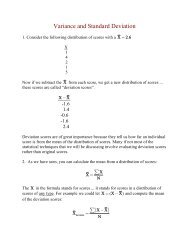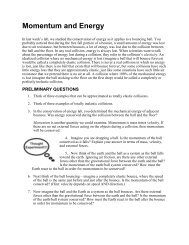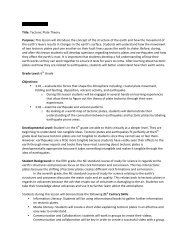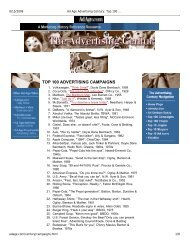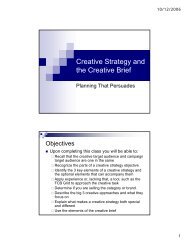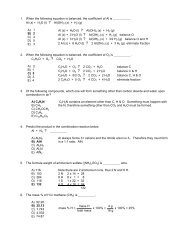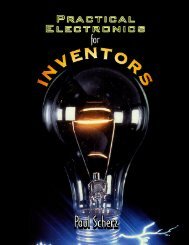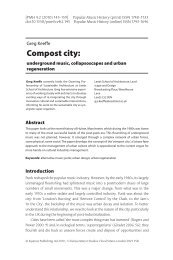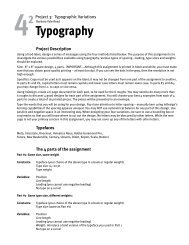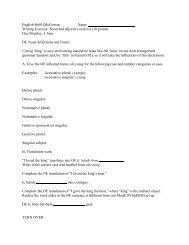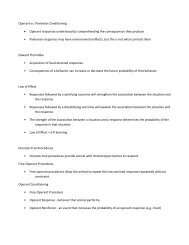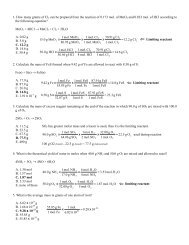Answers to Simulations of the Rescorla-Wagner Model Acquisition ...
Answers to Simulations of the Rescorla-Wagner Model Acquisition ...
Answers to Simulations of the Rescorla-Wagner Model Acquisition ...
Create successful ePaper yourself
Turn your PDF publications into a flip-book with our unique Google optimized e-Paper software.
Overexpectation<br />
Simulate five trials <strong>of</strong> overexpectation for <strong>the</strong> experimental group only.<br />
Assume that Phase 1 training (AUS, BUS training is complete). For<br />
this simulation simulate 5 trials <strong>of</strong> Phase 2 (ABUS). Assume that k A =<br />
.2 and k B = .2 and that <strong>the</strong> associative strength <strong>of</strong> both A and B are<br />
equal <strong>to</strong> 1 following Phase 1 (i.e., Va = 1 and Vb = 1).<br />
Group Phase 1 Phase 2 Test Observe<br />
Overexpectation A-->US / B-->US AB-->US b cr<br />
Control A-->US / B-->US no training b CR<br />
Group Overexpectation (Phase 2)<br />
Trial ΔV A V A ΔV B V B<br />
1 -.20 .80 -.20 .80<br />
2 -.12 .68 -.12 .68<br />
3 -.07 .61 -.07 .61<br />
4 -.04 .56 -.04 .56<br />
5 -.03 .54 -.03 .54<br />
How does <strong>the</strong> associative strength <strong>of</strong> CSs A and B change compared <strong>to</strong><br />
<strong>the</strong> control group (<strong>the</strong> associative strength <strong>of</strong> CSs A and B at <strong>the</strong> end <strong>of</strong><br />
Phase 1)? Why does CS B elicit a weaker conditioned response in <strong>the</strong><br />
Overexpectation group relative <strong>to</strong> <strong>the</strong> control group? Discuss in terms <strong>of</strong><br />
surprise.



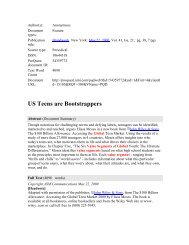
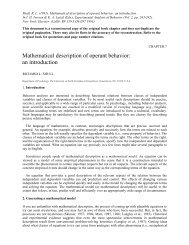
![Graduate Bulletin [PDF] - MFC home page - Appalachian State ...](https://img.yumpu.com/50706615/1/190x245/graduate-bulletin-pdf-mfc-home-page-appalachian-state-.jpg?quality=85)
